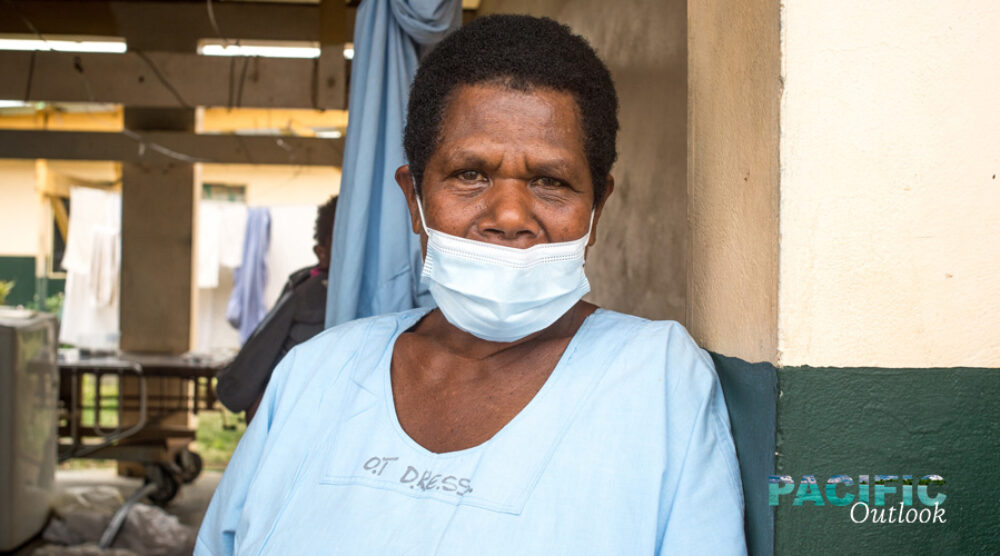The threat of COVID-19 in the Pacific islands requires a disaster response mobilisation.
A chief from the remote Banks islands in Vanuatu told me this kastom story: A giant came to the island of Mota Lava. He killed and devoured the entire populace, until only a handful of survivors remained. They fled to nearby islands in canoes. Among them were a mother and her two young sons.
They lived in exile for weeks, then months, then years. Occasionally, one or two people would try to return, only to be devoured by the ravening giant. When the two boys had grown, they told their mother they had a plan to return to the island and kill the giant. They paddled back to Mota Lava, and set a fire that covered the entire island, driving the giant into a cave. They blocked the entrance with stones, making the place safe for humans again.
Their descendants, said the chief, were the forefathers of everyone alive on Mota Lava today.
I don’t think this is fiction. I believe it to be a recounting of the arrival of European illnesses to these islands. Researchers have estimated that many islands in Vanuatu’s Banks and Torres groups were completely depopulated within years of first contact.
This pandemic certainly won’t depopulate the islands, but it could devastate them, economically and socially. Australia and others can—and must—do something about this newest pandemic, though.
Here in the Pacific, and in virtually every other country, there’s a nearly inescapable temptation to look at the virus that causes COVID-19 as an outside thing, as an external threat. That’s just wrong.
This new coronavirus is among us. It’s already here, and it will never go away. We can’t fight the giant. We have to use our wits to prevail. And we have to do it together.
Whether Australians think it’s a priority or not, helping the Pacific islands through this ordeal is a strategic necessity. The only way to ensure against constant re-introduction and re-infection is to strengthen all points of entry.
Singapore, China, Hong Kong, Taiwan and many others are perfectly capable of handling their end. Indonesia, Timor Leste and the Pacific islands are significantly less able.
That may be our problem, but like it or not, it’s Australia’s too.
There are other strategic reasons Scott Morrison should step up and honour his commitment to his Pacific vuvale, or family. China is already positioning itself as a white knight, and could gain considerable moral high ground if it is seen to be the one nation that knows and cares enough to assist.
Beijing-based officials have already held video conference calls with Pacific officials and administrators to help them understand the nature of the threat. Given the assistance they’ve offered Italy and others, it’s a sure bet they’ll be willing to bring all their public health assets to bear on the crisis.
Pacific island nations already face crisis-level shortages in medical treatment facilities and staff. The only way we’ll be able to cope with even a moderate rise in hospital cases is to establish isolation facilities with intensive care capability.
That cannot happen without outside help.
Pacific nations lack basic sanitation. If we are going to ‘Flatten the Curve’ here and reduce the infection rate to a tolerable level, local governments will need massive logistical support. We’ll need to set up sanitation stations at key points in all major towns and thoroughfares. We’ll need expert public health and epidemiological advice. We’ll need materials.
The burden of assistance is not Australia’s alone. New Zealand, The EU, the UK and the USA all have a vested interest—and a duty—to share the load. But the lion’s share of the work will surely be Australia’s.
Protocols exist to respond quickly to disasters in the region. The FRANZ agreement for example, was signed in 1992. It allows for a coordinated disaster response between France, Australia and New Zealand to any nation requesting it. Organising a region-wide response would require another level of organisation, but that could still happen under this umbrella. Other nations could participate by proxy.
If Pacific governments don’t get help from them, they surely will from China.
The economic impact of this global crisis is guaranteed to hit us harder than just about anywhere else. Already, treasury officials in PNG are quietly panicking over the looming chasm in resource-based revenues. Vanuatu is anticipating thousands of job losses in the tourism sector, a double-digit percentage of our entire work force. Fiji, which also relies heavily on tourism, will like suffer equally. This could be devastating.
Without financial support, technical assistance and employment opportunities such as an expanded access to the Seasonal Worker Program and the Pacific Labour Scheme, we are likely to face our greatest crisis since the 1940s.
Inaction will devastate us, and it will leave Australia weaker.
Dan McGarry is former Media Director of the Vanuatu Daily Post. He is currently appealing the refusal of his work permit. He has lived in Vanuatu for 16 years.








